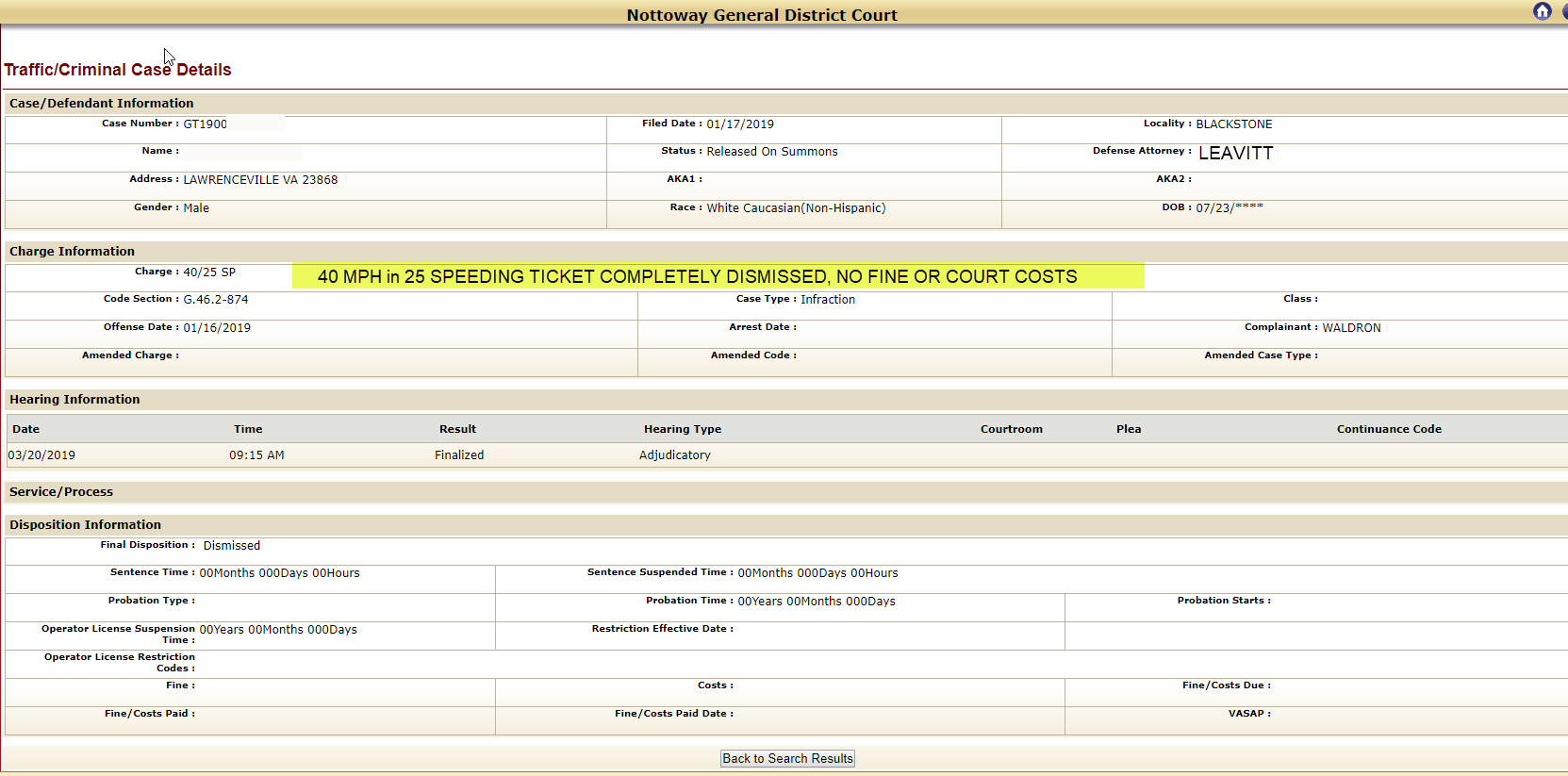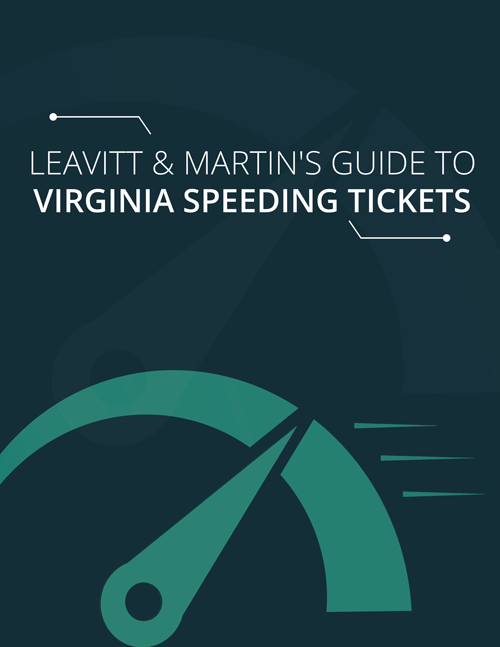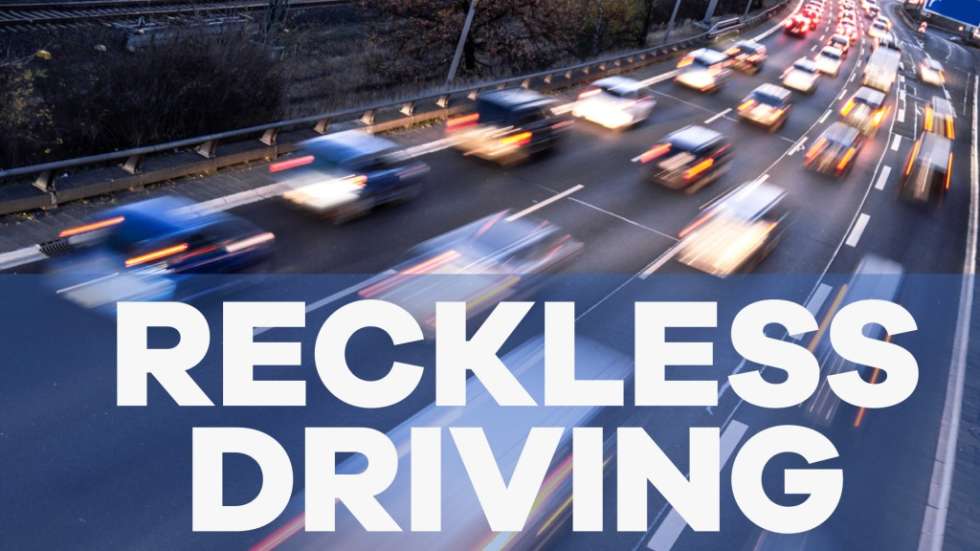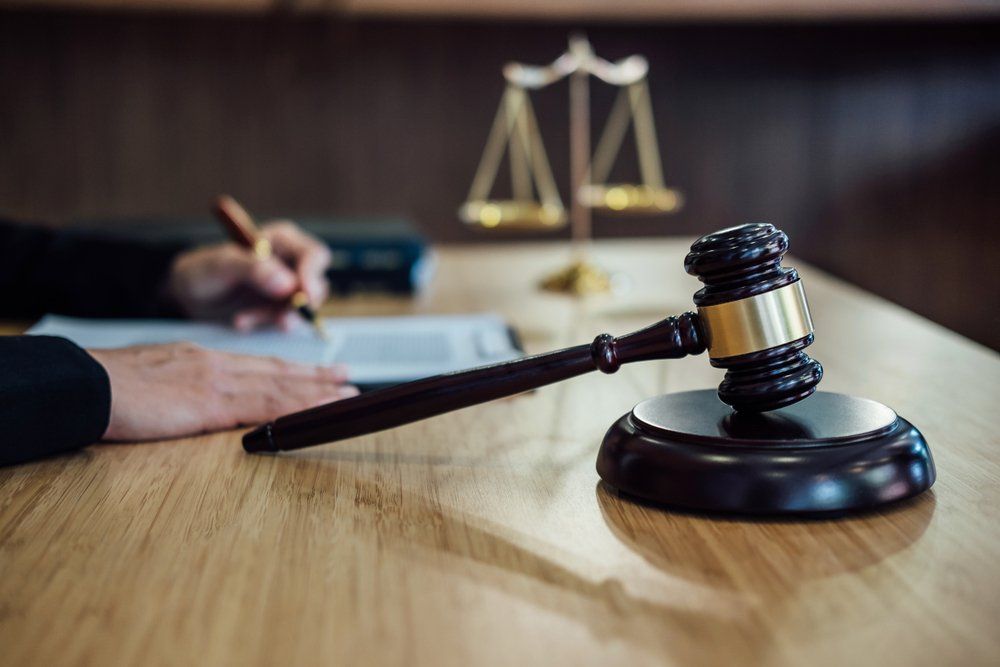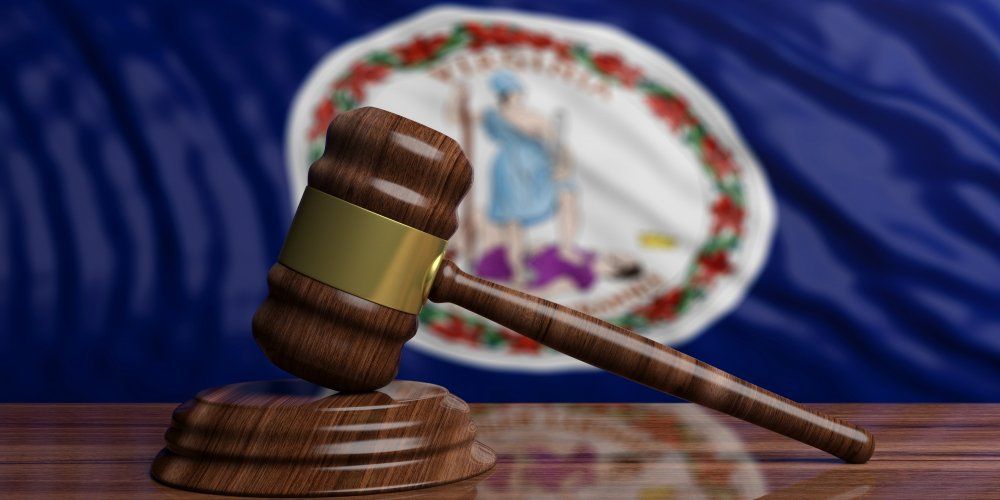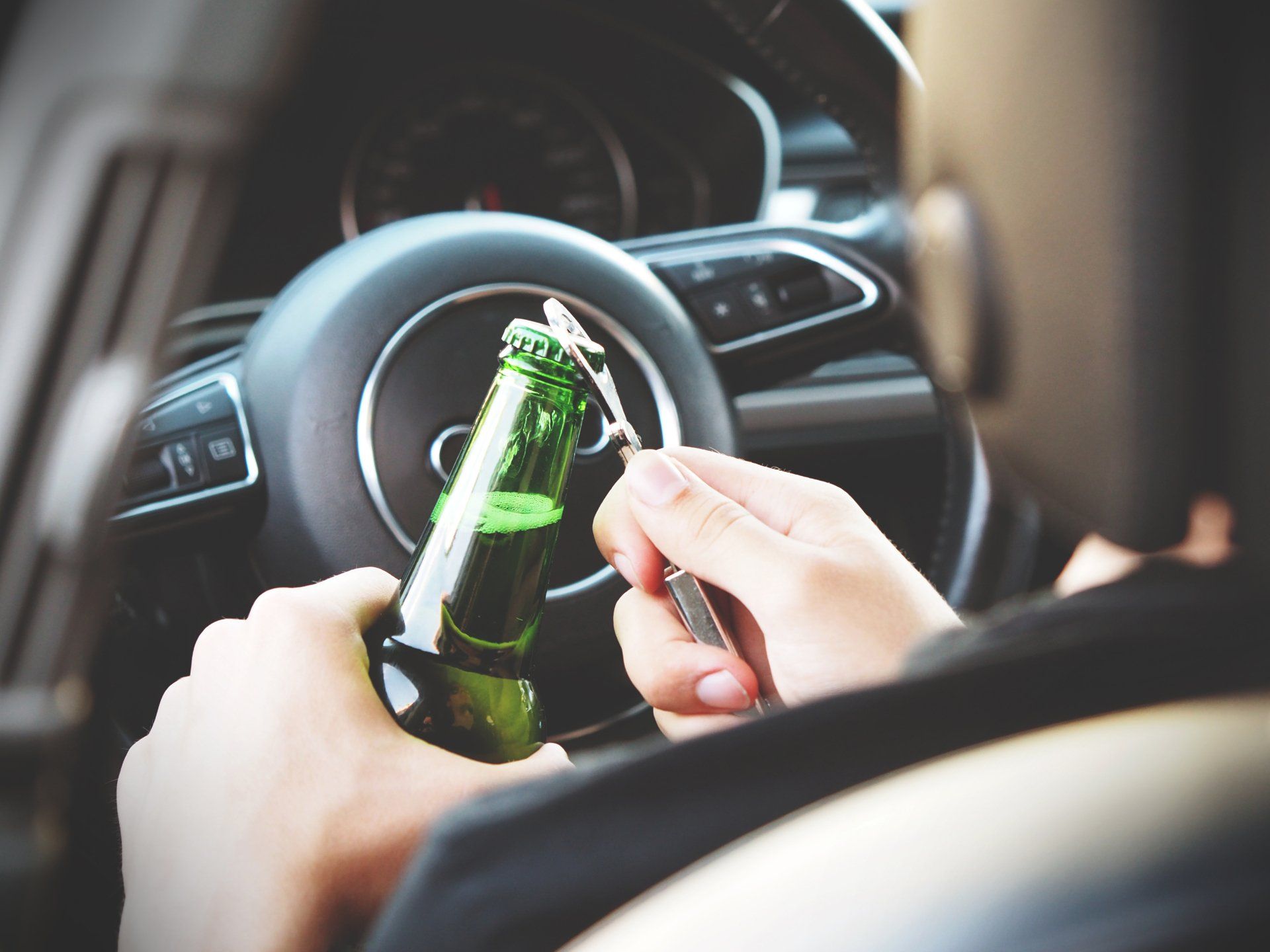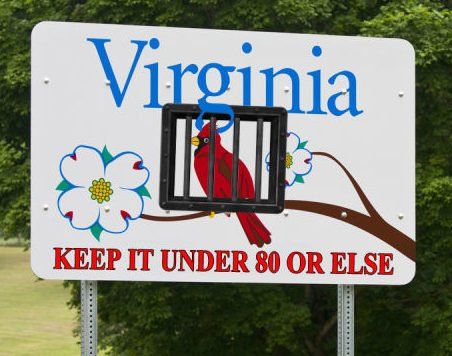How Can I Get a Virginia Speeding Ticket Dismissed?
If you have a Virginia speeding ticket, then you will want to know how you can get your Virginia speeding ticket dismissed. Leavitt & Martin specializes in Virginia traffic law. We handle reckless driving speeding, speeding tickets, DUI, and other traffic tickets. If you have a Virginia speeding ticket you need to look at your ticket and determine if you are charged with reckless driving or simple speeding. In Virginia, driving 11 mph over the speed limit is reckless driving if you were driving at 81 mph.
There Are Two Ways to Get a Virginia Speeding Ticket Dismissed
I am a Virginia traffic lawyer and I specialize in defending speeding tickets, to include reckless driving by speed. For many clients, this is their first reckless driving offense in Virginia. I have successfully defended thousands of clients charged with speeding in Virginia and reckless driving in Virginia. Many of my clients are out of state drivers. There are two ways to get your Virginia speeding ticket dismissed.
- Find a legal defense with your case
- Convince a judge or prosecutor to dismiss your case
Legal Defenses for Virginia Speeding Ticket
What are some legal defenses to speeding ? Over the years I have found many legal defenses to Virginia speeding tickets. Theses legal defenses are based on (a) errors on the ticket itself, (b) the officer clocked the wrong vehicle or didn’t even clock the vehicle given the ticket, or (c) issues with the calibration of the officer’s speed measuring device
Errors on the Ticket Itself
Most errors on the ticket will not result in a dismissal. If the officer misspells your name, or even writes down your address wrong. These errors do not get to the issue of whether or not someone is guilty of speeding.
The most common errors I find on the ticket that result in a dismissal of your Virginia speeding ticket are when the officer writes down the wrong offense date. Officers write a lot of tickets. And it is not uncommon for the officer to write down the wrong offense date. If this happens, you may have an alibi defense. Some judges will reject this defense if the offense date is close to the actual date. But I have won cases where the officer writes down the wrong offense date and my client had an alibi and the cases were dismissed.
Another common error on the ticket is when the officer uses information from two different sources on the ticket. The officer may be looking at the information on the registration and uses some information from the registration and some information from the driver’s license. This is more common than you would think. I have seen this defense multiple times and the case has been dismissed every time.
The officer writes down the wrong law section or the wrong law description. I have had officers write a ticket for reckless driving by speed for 80 mph in a 70. However, that is not possible. There is no Virginia offense for reckless driving by speed , 80 mph in a 70. The offense does not exist, and therefore the judge should dismiss the case.
The Officer Clocks the Wrong Vehicle
Dismissals are more common with RADAR versus when the officer uses LIDAR (laser). Laser pinpoints a specific vehicle. Radar does not work that way. Radar picks up on the fastest object in the field. It is up to the police officer to visually pick out the vehicle he or she is going to pull over. And they make mistakes sometimes.
I have successfully defended clients charged with very high speed cases, where my client testified they were not driving that fast and the circumstances indicated the officer may have made an error.
Some officers pull over multiple vehicles at the same time. This is allowed, but only IF the officer individually clocks each vehicle and sometimes they don’t. Some officers will clock the lead vehicle, and pull over BOTH the lead vehicle and the vehicle right behind it. They assume the second vehicle is traveling at the same speed. However, this is not a permissible method to write a ticket. If this happened the case should be dismissed.
Radar/LIDAR Calibration Issues
This is the most common defense. At Leavitt & Martin , we see this issue come up all the time. In Virginia, the officer who wrote your speeding ticket will normally use RADAR or LIDAR (laser) to measure the speed of your vehicle, and write you a ticket. Some officers use PACING, although this is less common.
Regardless of how the officer measured the speed of your vehicle, they must have an original calibration (or a “true copy”) that was done within the last six months. So you take the offense date on your ticket, and you go back exactly six months. If the officer cannot produce and original calibration, or a “true copy” that was done within that six month period, then your case should be dismissed.
Reading this law is merely a first step. The six month requirement comes from this language:
In any court or legal proceeding in which any question arises about the calibration or accuracy of any laser speed determination device, radar, or microcomputer device as described in this section used to determine the speed of any motor vehicle, a certificate, or a true copy thereof, showing the calibration or accuracy of (i) the speedometer of any vehicle, (ii) any tuning fork employed in calibrating or testing the radar or other speed determination device or (iii) any other method employed in calibrating or testing any laser speed determination device, and when and by whom the calibration was made, shall be admissible as evidence of the facts therein stated. No calibration or testing of such device shall be valid for longer than six months.
Look Closely at the Dates
If you think the state police, law enforcement, prosecutors, or even judges are familiar with this law then think again. Most judges, prosecutors, defense lawyers, and officers do not know this law very well. I have had state police troopers testify in court that their calibration is good for one year. That just is not true. I have pulled up this law to educate the police, prosecutors, and even judges on what the law actually says.
Look closely at the dates on the calibration. I HAVE HAD PROSECUTORS MESS THIS UP, EVEN WHEN REVIEWING THE CALIBRATION. So don’t assume the calibration is valid simply because a calibration is produced.
EXAMPLE: My client was charged with driving 121 mph. The prosecutor looked at the offense date and went back exactly six months. He told me that the calibration expired on the date of the offense. If that was true, it would have been valid. However, I looked closely at the dates. The calibration letter itself was dated exactly six months from the offense date. HOWEVER, the body of the letter then certified that the calibration had been done ONE MONTH PRIOR. That means that it was certified SEVEN MONTHS from the offense date, and not six months. My client won his case because of this and did not have to go to jail.
So look closely at the date or dates on the calibration. Sometimes there are two dates, and you need to find the DATE OF THE ACTUAL CERTIFICATION.
Is the Calibration an ORIGINAL Document or is it a True Copy?
Only ORIGINAL calibrations or TRUE COPIES are admissible in traffic court. An original document will have the actual ink signature on the calibration. A “true copy” is not just a xerox copy. It must be certified as being a true copy. There are other requirements for it to be a “true copy” and there is a very good authoritative case on point regarding what a “true copy” is in this context.
Many times, there is not an original or a true copy.
Convince a Judge or Prosecutor to Dismiss Your Speeding Ticket in Virginia
Driving School
First of all, why would a judge or prosecutor dismiss your Virginia speeding ticket? In many courts this is a common occurrence. Virginia law states that the court has discretion to send someone to driving school to reduce or dismiss a speeding ticket.
There are no laws that limit the court’s ability to do this at even high speeds. However, many courts will have their own policies about how and when they use driving school to reduce or dismiss a case. In some courts, they will let you do driving school once every three years and in some courts it is every five years. In some courts, your driving record will play a role in whether or not they let you do driving school. Also, some courts want you to do driving school BEFORE court and in others they don’t like it. Finally, there are differences in the driving schools the courts use. Some want a 12 hour course and others an 8. Some want you to do the course in person and others don’t care if it is online. Many courts want you to do a court required course and some are ok with a voluntary reason for doing driving school.
Every court has their own rules, and those rules are often different at different speeds. It is important to talk to a traffic specialist who can properly advise you on what your particular court does. Because I see judges get angry in court all the time when people try to do the right thing, but they do things the wrong way and it has the opposite effect.
Dismissal With No Driving School
Some judges will dismiss a case for various reasons that have nothing to do with driving school or a legal defense. These cases usually revolve around mitigating circumstances. It is important to prepare each case in light of who the judge is likely to be. Every judge is different.
I have had hundreds of cases dismissed by preparing the case in a particular way based on who the judge is. This comes down to knowing the particular judge, and what he or she likes. It can result in a dismissal.
Even if You Cannot Get Your Speeding Ticket Dismissed, A Reduction is Often Possible
The most important thing to do for any Virginia speeding ticket is to prepare the case in light of who the judge will be that day in court. It is true that judges take vacations and get sick, and that a small percentage of the time there will be substitute judges.
Many times a properly prepared case makes the difference between a dismissal/reduction or a conviction.
The post How Can I Get a Virginia Speeding Ticket Dismissed? appeared first on Leavitt & Martin.


